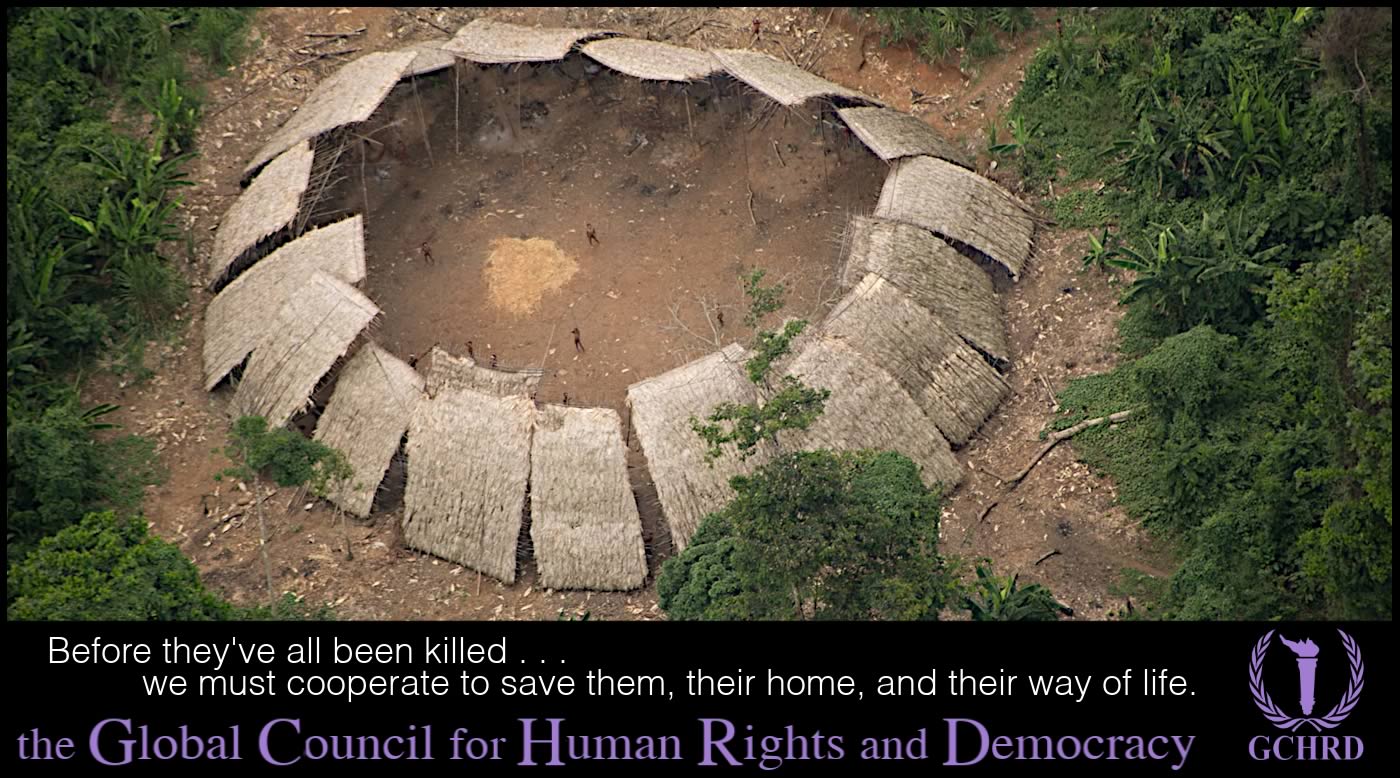

human rights
Comprehensive human rights are the foundation of good democracy and a healthy society.
Abuses of process can be curbed by appropriate procedures, but many aspects of the basic quality of our lives, the security of individuals, and the perpetuity of civilization, must be protected by rights defined in our highest laws and defended by timely and effective enforcement.
Over many decades, attempts at producing a binding global charter of rights have demurred to powerful states with poor human rights records. The sovereignty of offending nations was traditionally a barrier to action from other countries who wished to intervene to protect their neighbours. Until there was literally a declaration of war, no government would consider involvement in another country's "internal matters".
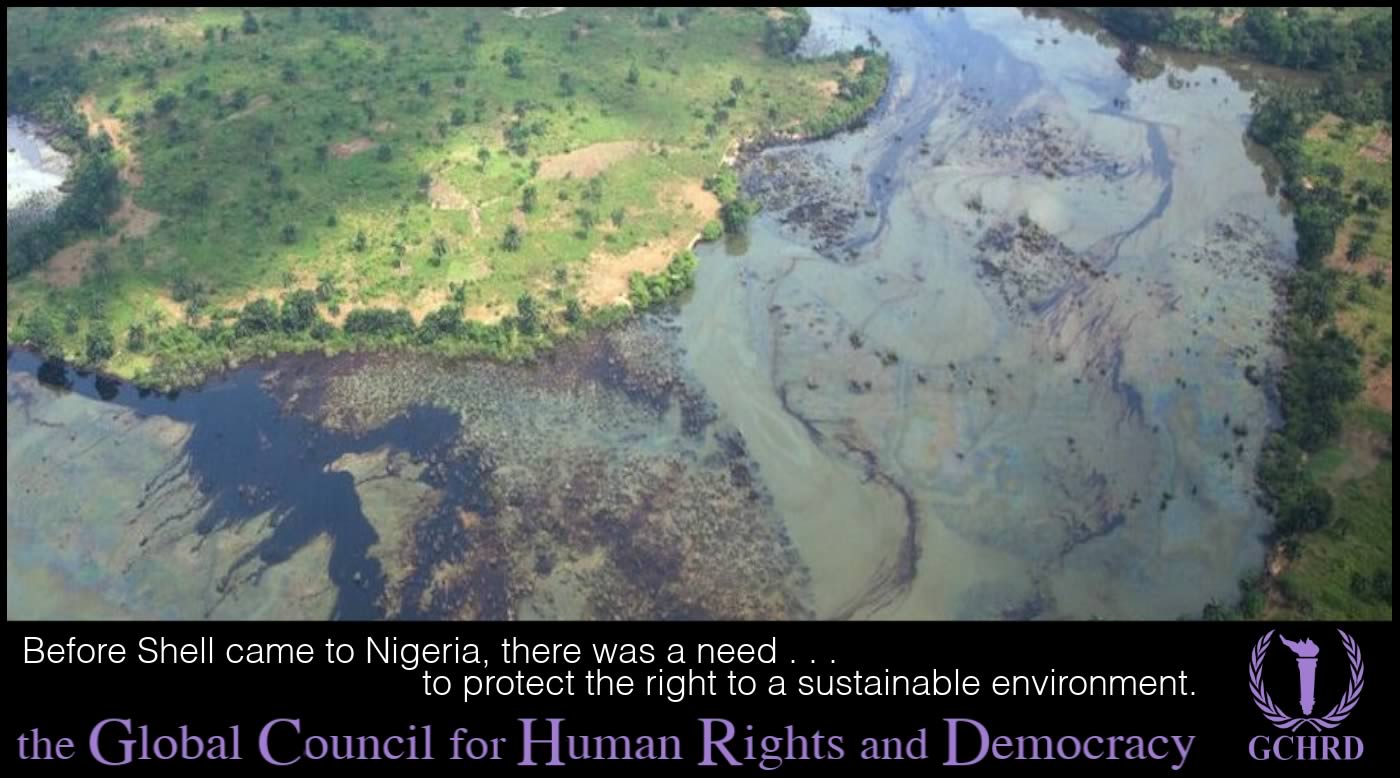
Thankfully, the 21st century has seen the increasing willingness of the best countries to defend the citizens of other countries, when there are clear crimes against the peoples’ rights. The independence of the Universal Declaration of Human Rights is an important building block in the transnational defence of human rights, but there is still a clear need for the United Nations, the International Court of Justice, the International Criminal Court, and the International Law Commission to expand on treaties and enforcement mechanisms to protect rights across national borders and ensure those mechanisms can be effective in a timely manner.
While a number of nation states grapple with increasingly bold challenges to their internal democracy, the
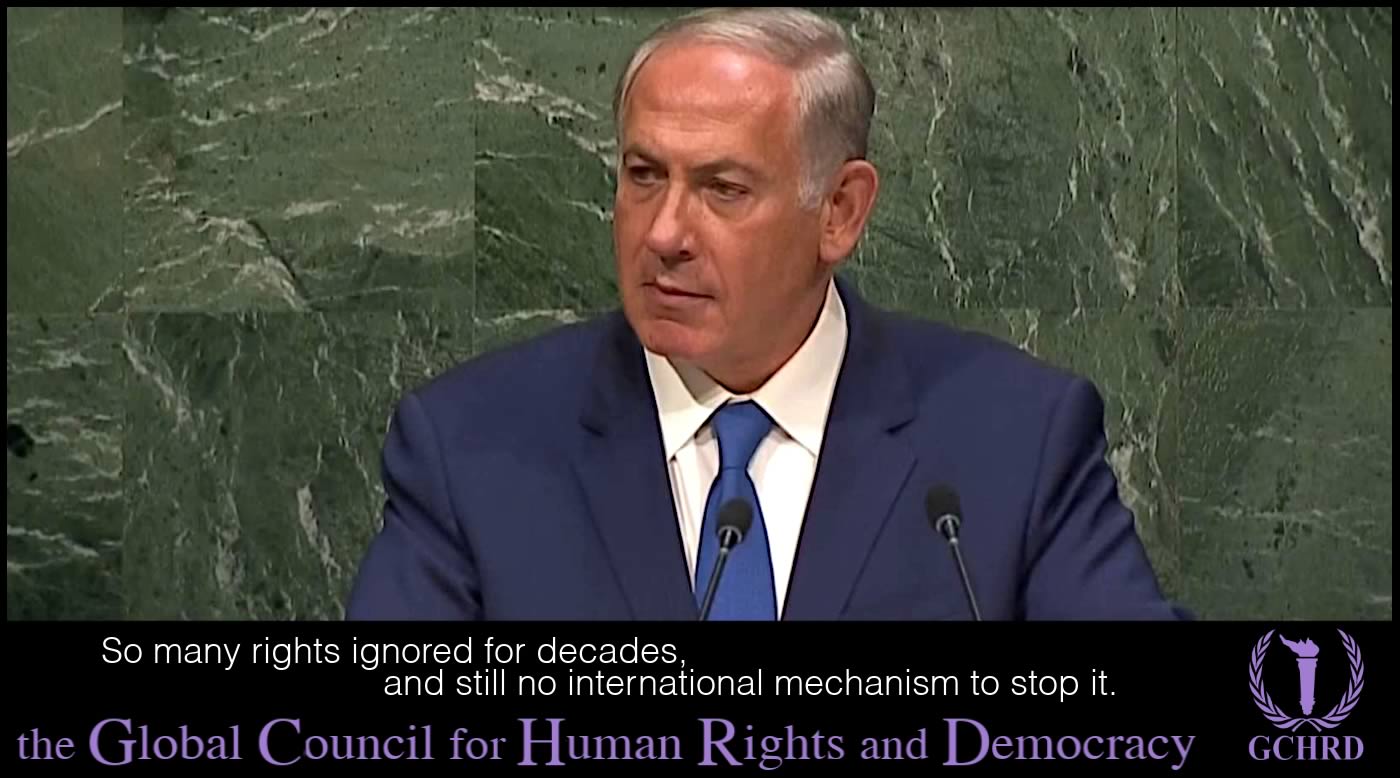
Some rights are required to ensure the proper function of a democracy. Others are required to balance the interaction between citizens. New challenges to society and the environment point to the need for additional rights to be defined, protecting the survival of our species, the collective knowledge of humanity, the viability of our planet for life, and the pace and ethics of technological advancement. Therefore, in addition to the those rights defined in the 1948 United Nations Universal Declaration of Human Rights, the
the right to fair representation - activities that damage or limit access to fair electoral representation and seek to concentrate or prolong un-mandated power in a preferred group or person, should be treated as crimes against humanity.
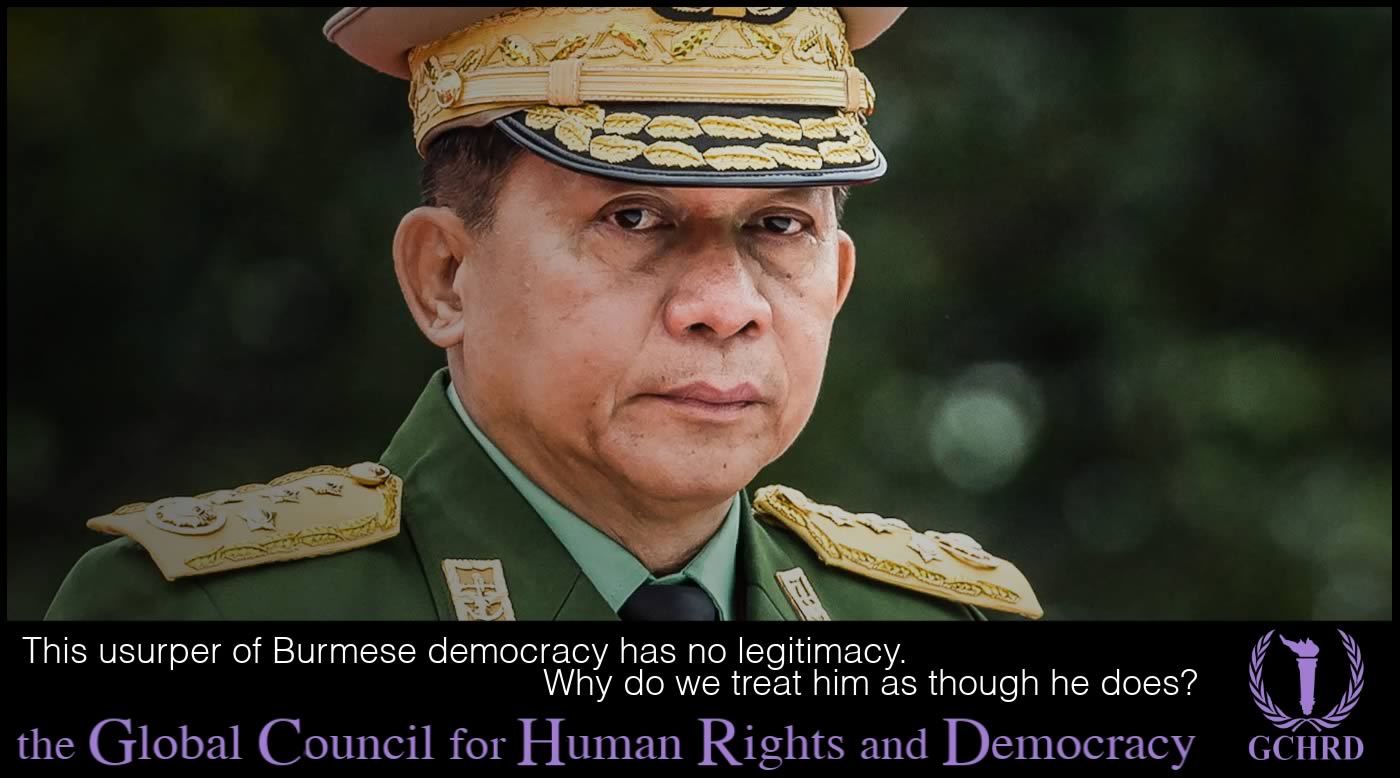
the right to live in a sustainable economy - history is littered with the shadows of civilizations that collapsed because a few powerful people were willing to pursue personal gain, all the way to the destruction of the society. A number of old and new technologies fall into this category today, including fossil fuel, disinformation, and artificial intelligence.
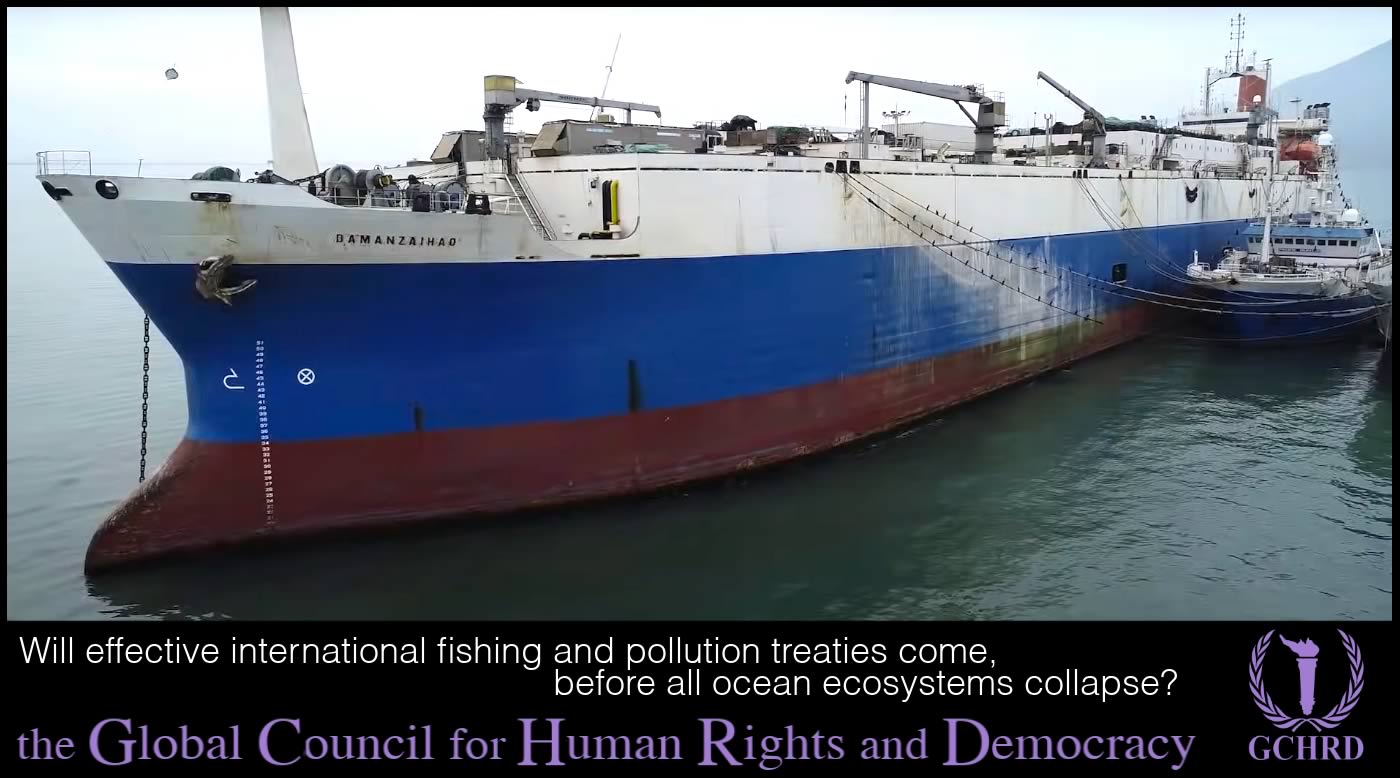
the right to live in a healthy environment - no person should be forced to live in a place despoiled by the hubris, neglect, malice or self interest of others. No individual's activity can be allowed to spoil the environment of others. Governments must recognize our right to live in a sustainable environment and allow citizens to seek relief in the courts.
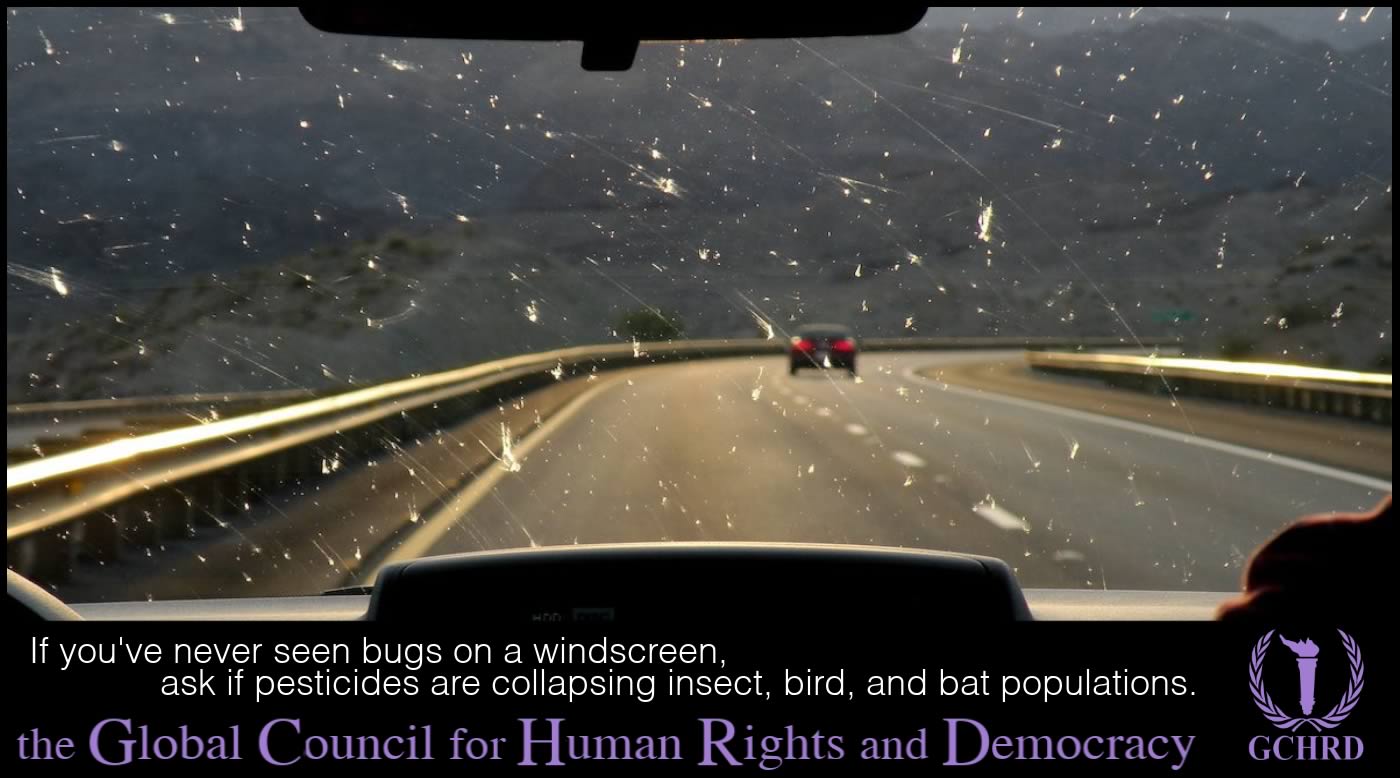
the right to environmental integrity - the continued stability of global environmental systems is essential to the vitality and continuity of life. Since many primary environmental systems span many national boundaries, we must establish transnational treaties to protect the functionality of entire biosphere systems, not merely a few species.
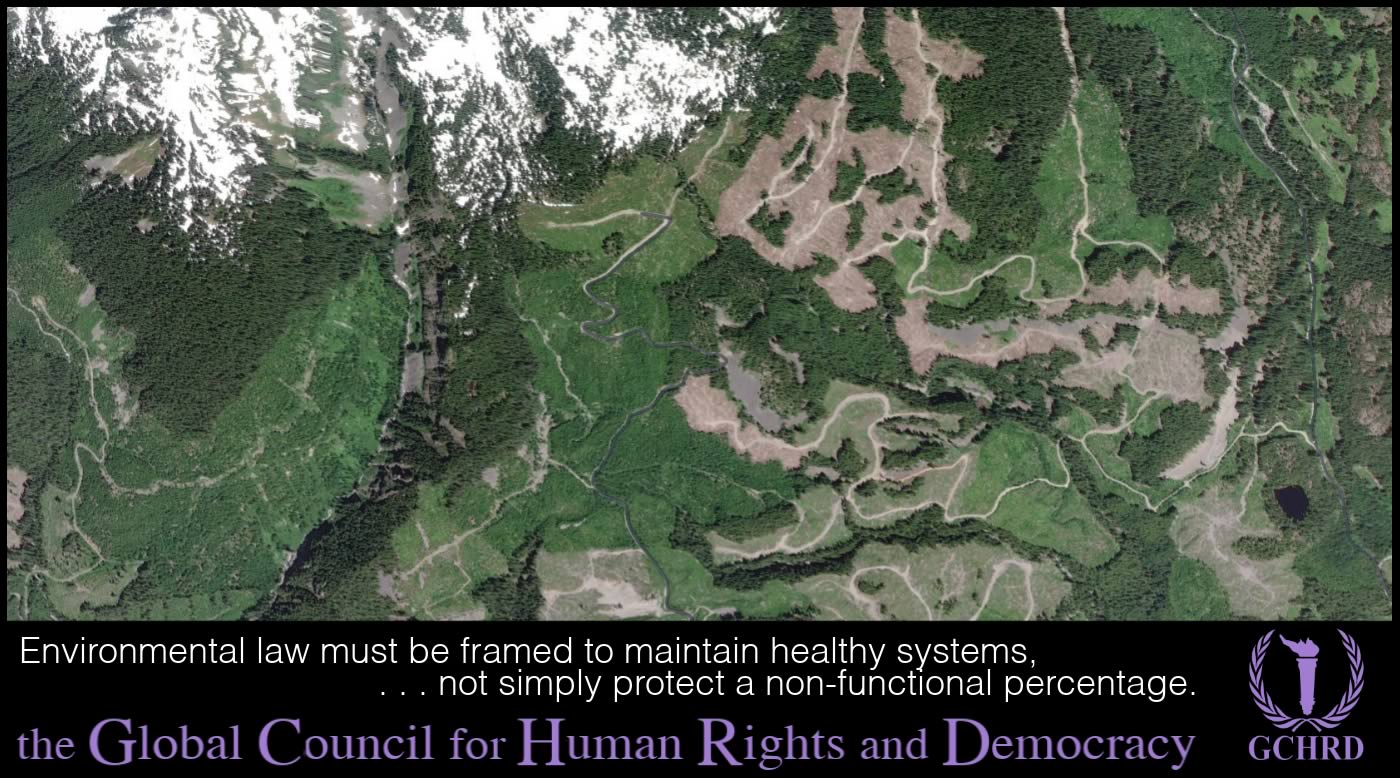
the right to collective self-determination - citizens acting through the process of fair and representative democracy should determine the course and shape of society, yet the power and impunity of the largest corporations exceed that of their national governments. Corporate agendas are now imposed, without legitimate mandate, on citizens everywhere. We must build strong international treaties to protect and assert the power of properly mandated governments.
![]()
the right to freedom from needless incarceration - we must move beyond our archaic desire for retaliation and punishment. Criminal behaviour has causes and research shows that most causes can be alleviated, the rest deserve the compassionate support of society, not incarceration or execution.
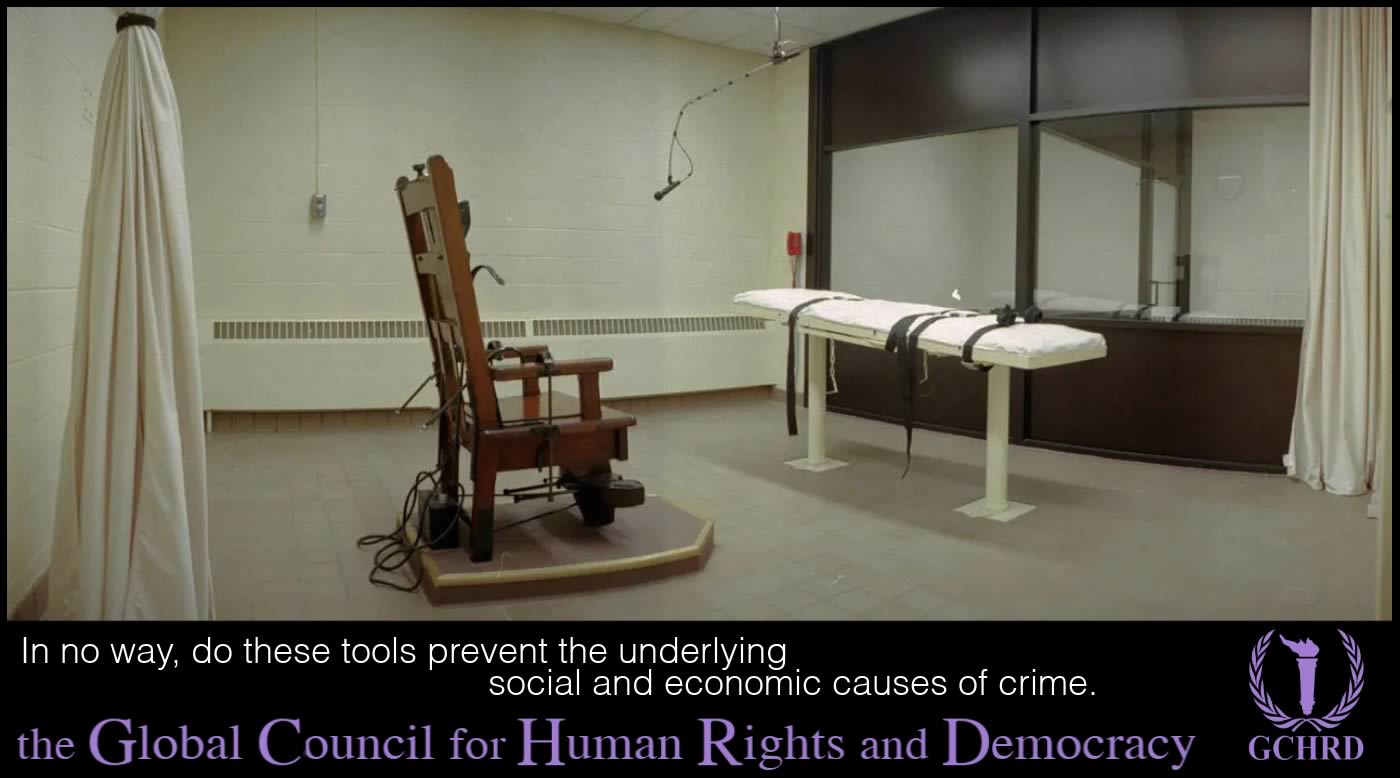
the right to access the necessities of life in food, water and shelter - in the face of population growth and climate change, protection from rising forms of segregation and tyranny must be addressed.
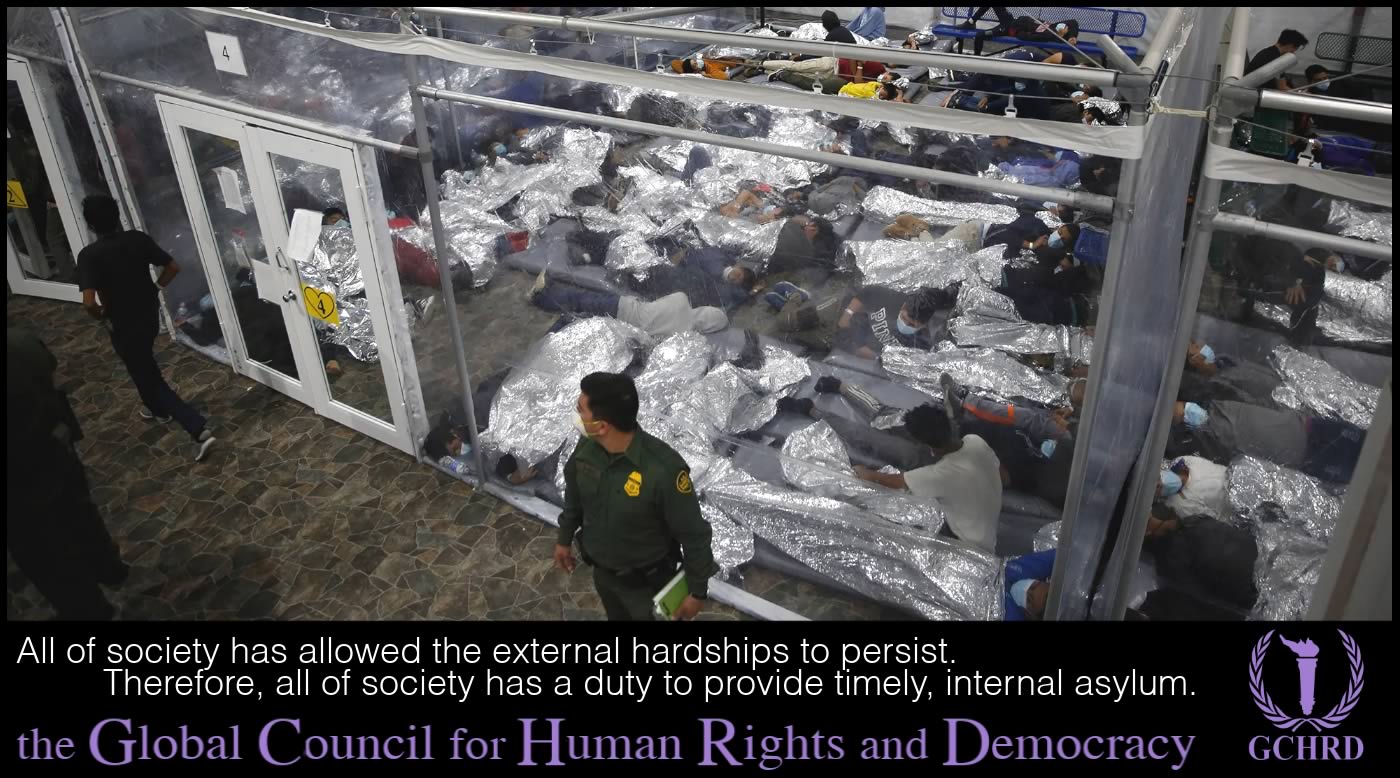
the right to freedom from conflict - too many wars are initiated by leaders with no legitimate mandate to govern. We need an international treaty with an effective and timely mechanism for the removal of unmandated leaders, long before conflicts errupt.

the right of access to knowledge and education - knowledge has been withheld from the masses by various mechanisms as a form of tyranny, power, oppression, ideology or profit for centuries. Disinformation, eroded education standards, and allowing corporations to mediate access to knowledge, have all contributed to the counterintuitive problem of diminishing access to the sum of human knowledge and facts. Factually informed citizens are essential in democracy. The preservation of our civilization depends on the unobstructed inheritence of our collective knowledge.
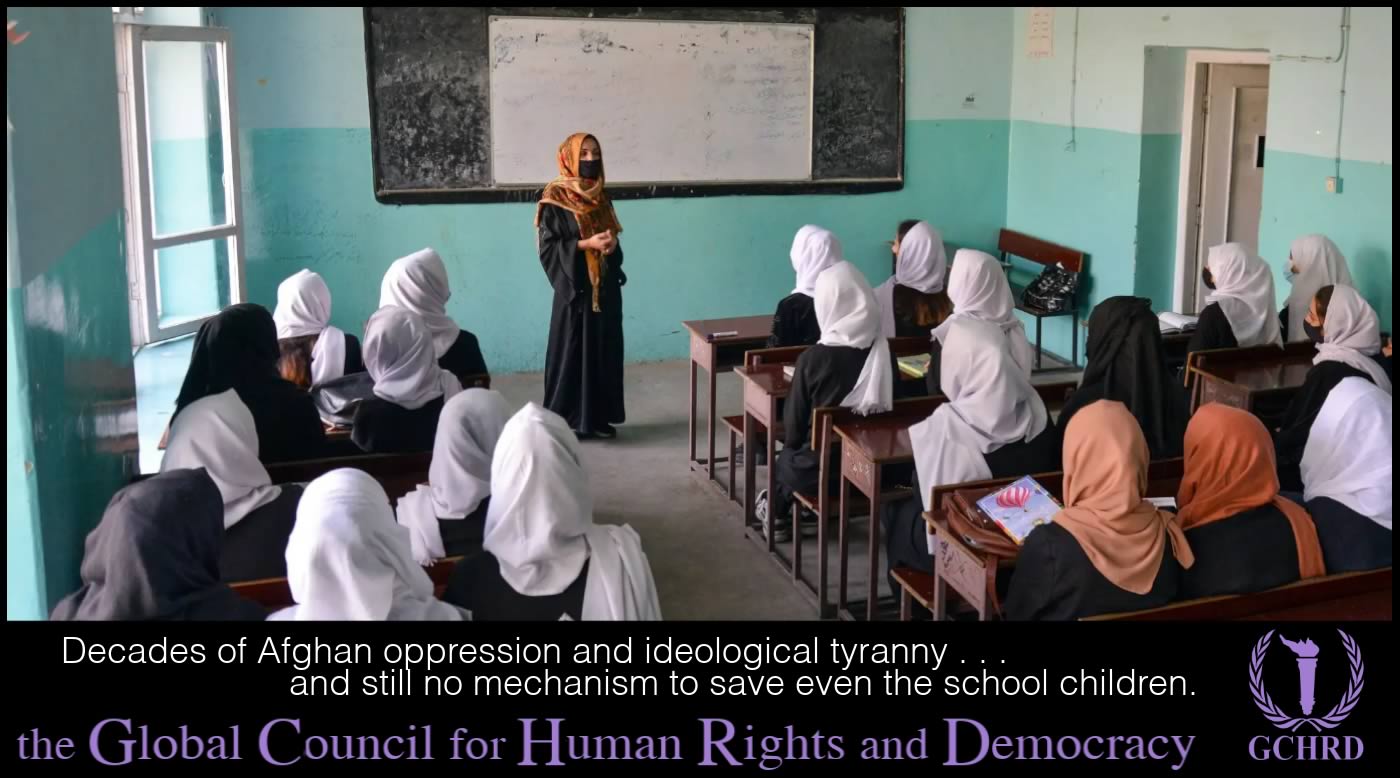
the right to health care - no person should withhold medical knowledge or treatment from another person in need. Access to health care is an individual right and a basic societal responsibility.

the right to privacy - no person, group or business has the right to observe or collect information about you without informed consent. No government should observe or collect information about you unless you have committed a crime. The power of government and industry must always be offset by the freedom, independence and privacy of citizens.

the right to communicate - the rise of the Internet has shown that our communication with each other is both essential and vulnerable, and must be protected as a basic right.
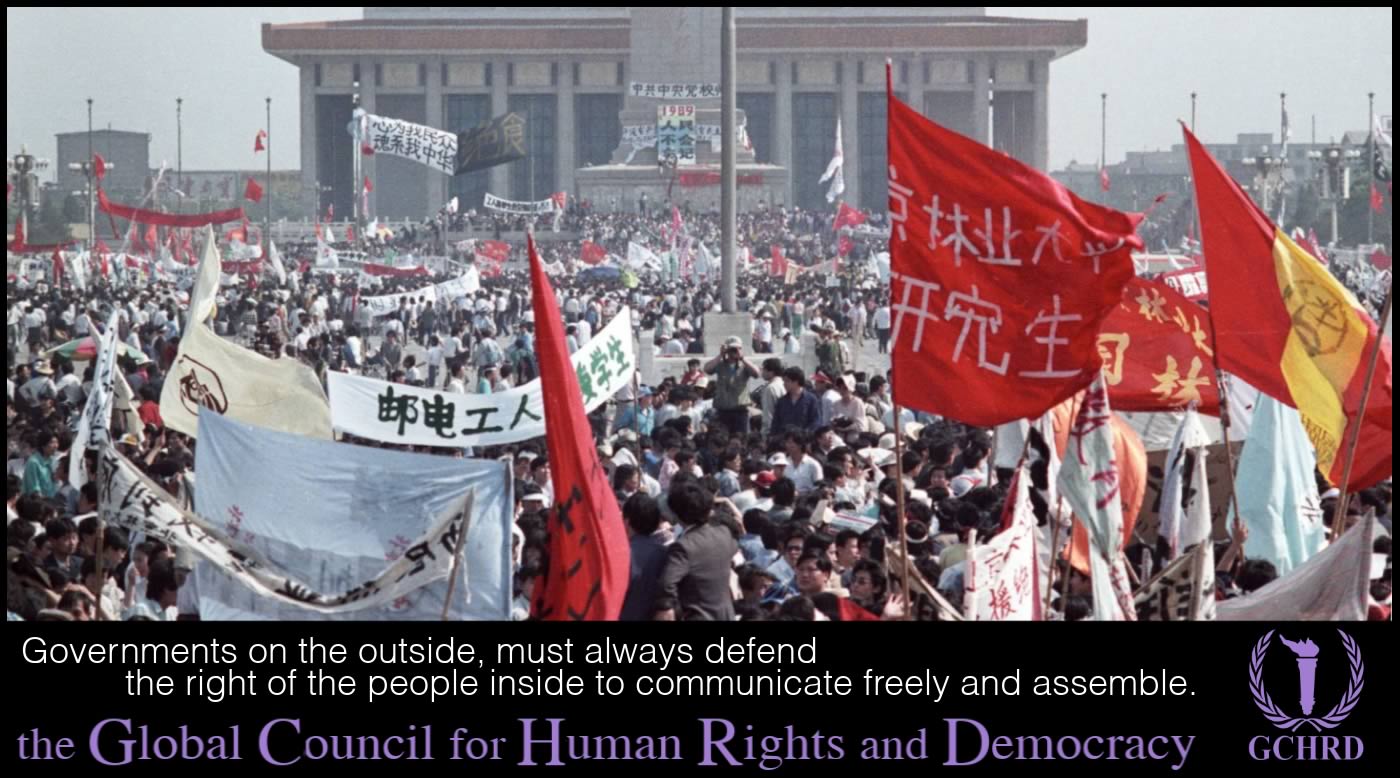
freedom to worship and freedom from religion - the former is widely accepted, but it is becoming increasingly clear that there must be a balancing right to freedom from religious oppression. The protection of religious freedoms does not include failing to respect the rights and lifestyle choices of secular citizens.
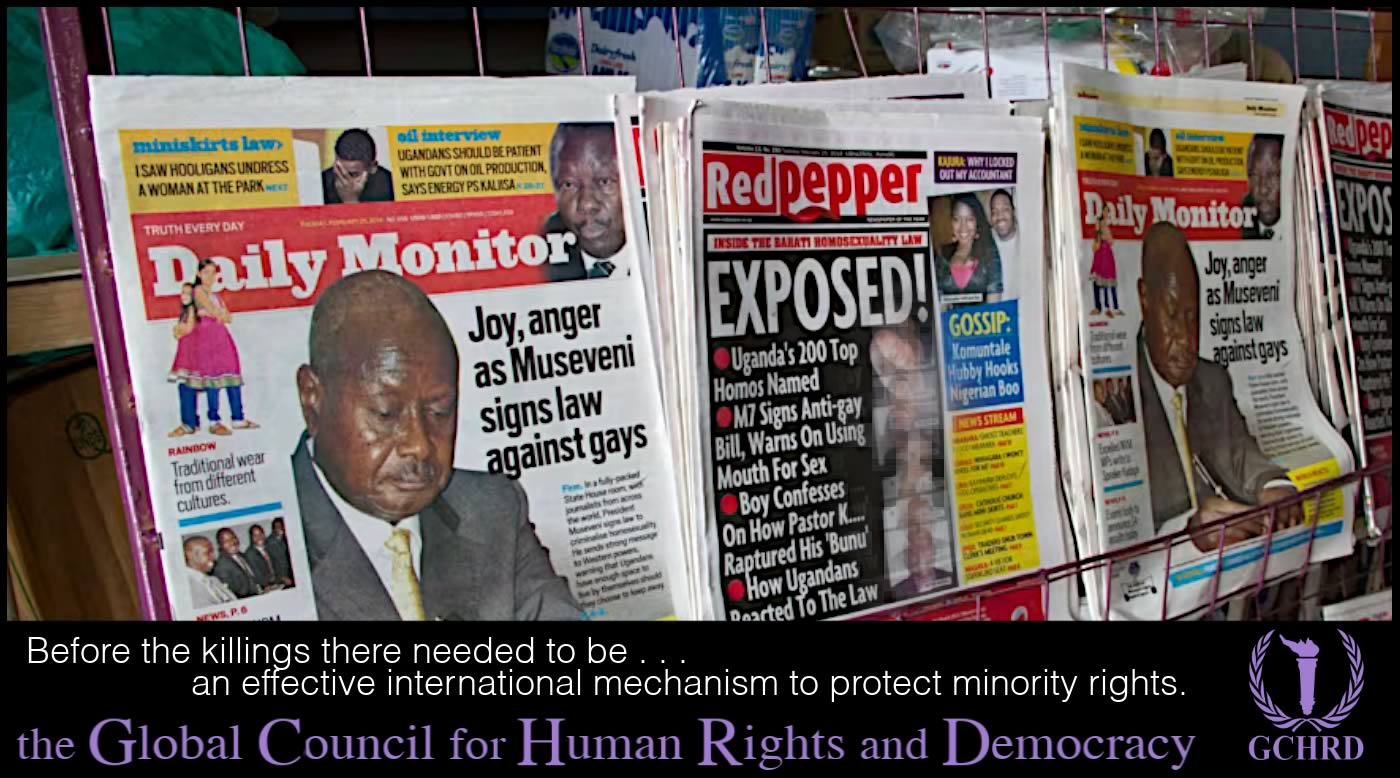
indigenous rights - indigenous rights and self-determination must be protected from colonial, economic and cultural encroachment. As a minimum, all nations should be respecting the rights and freedoms set out in the United Nations Declaration on the Rights of Indigenous Peoples (UNDRIP).
